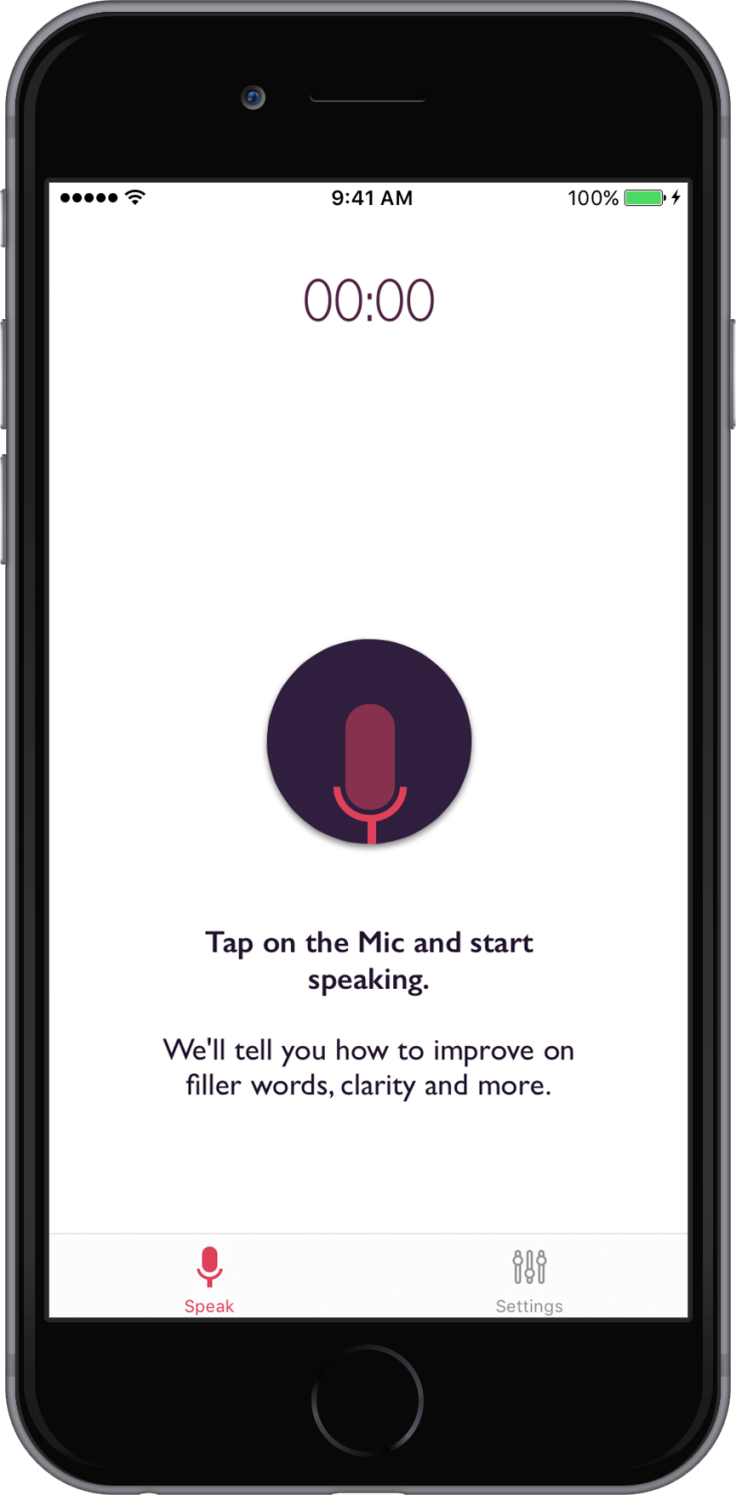Ummo app improves public speaking by stopping users from saying 'umm' and 'like'

An app developed by Harvard and MIT students analyses speech patterns to help users improve their public speaking skills. The app, called Ummo, focuses on filtering out filler words such as "umm", "like", "uhh", "totally", "literally" and so on.
When asked by IBTimes UK to describe the app, one of the developers, Andrea Coravos, likened it to the popular fitness tracker app - "Think FitBit for speech fitness," in an email. The app aims to bring "data-driven self awareness to public speaking".
The inspiration for the app came from one of the first classes that all students of the Harvard Business School have to go through, which involves the professor "cold calling". Although the exact method varies, the class involves a professor randomly picking a student and then expecting him or her to "eloquently and convincingly" explain a theory or take a side in a debate. The prospect of having to spontaneously speak and articulate a concept can be quite daunting and often, as noticed by the creators of Ummo, lead people to "fall into the trap of using endless filler words ("umm", "uhh", "you know", "like") to bridge the silence as they articulate their thoughts."
"We came together as friends at Harvard and realised that less-than-perfect communication is an issue for all and one that people desperately want to improve and yet simply have ignored for too long. We talked to everyone from professors in the communications programme at Harvard, to executive coaches and speech therapists around the nation, as well as to our former employers (consulting firms and banks that spent ample money on communications coaching for new-hires) to understand the most common use cases. We were astonished at how prevalent of a need improving communications skills really was," said Coravos.
The app listens to and records users' speeches and has been designed to alert users when they use filler words. Ummo also provides users with various stats that can help them analyse their own speech patterns to identify what kinds of words or phrases they use more often. The app provides information on the quality of speech in terms of clarity, speed and the number and length of pauses that users tend to take when speaking. In addition, users can input their own list of filler words, which the app then identifies and alerts when used in speech.
Unlike some other productivity apps, Ummo currently stores no data including audio files. However, future versions of the app may provide users with the ability of saving audio files onto the app and analysing their improvement over time. The app is currently calibrated to US English, but the creators of the app plan to add UK English as a feature to the app as well in the future. Most notably, Ummo does not provide "overall rating" for users' speeches. This was an intentional decision on the part of the developers, who refrained from adding a speech rating feature "because everyone has his or her own speaking styles and we do not believe there is a single stereotype of a "good" speech.
Ummo is aimed primarily at professionals and may not be of much help in helping deal with the anxiety that is sometimes tied into the prospect of speaking publicly. It can, however, help users become more aware of their speech patterns and cut down on using filler words. The app is available to iPhone users and can be downloaded off the App Store for $1.99 (£1.37).
© Copyright IBTimes 2025. All rights reserved.





















